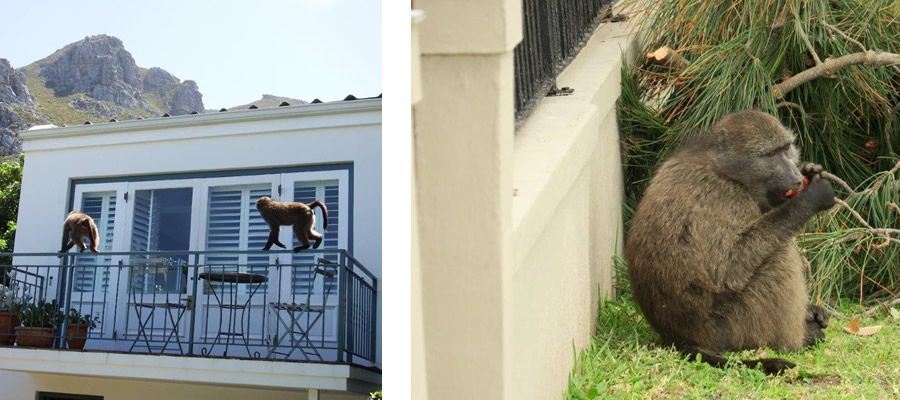Background and current status:
The Voelklip troop hails from the pristine, abundant conservation area of Fernkloof Nature Reserve where these primates have been foraging naturally on the endemics and indigenous bounty for centuries. Sadly, they became habituated to suburbia and human derived foods, after the baboon monitoring program was withdrawn in April 2013. The original program, employing EPWP workers from the community, ran successfully for years. They became familiar with the hierarchy of the particular troop and were trained to coerce the baboons away from suburbia, safely back to the Fernkloof Nature Reserve. The program was stopped by the Municipality in April 2013, ‘due to unavailability of finances’.
The troop became dependent on the sugars and high starch foods easily accessible from unsecured refuse bins and home kitchens.
As a consequence their behavior changed over 6 years and unlike most wild troops, the Voelklip troop displayed aggression towards humans and domestic pets which may be threatening or obstructing their access to human derived food or households.
The concept of a CONSISTENT baboon monitoring program is highly favored by the majority of residents and conservationists in Hermanus’ most affected areas.
In 2017, funds were collected to install beacons at various points in Fernkloof Nature Reserve to create a ‘virtual fence’. Together with collaring of alphas in the troop, linked to a location based website, and ID tagging, this approach by Human Wildlife Solutions worked well, with monitors encouraging the troop to remain in the reserve. This only lasted 3 weeks after which the voluntary funding dried up.
After the monitors were withdrawn, hundreds of residents affected by the problem baboons campaigned and petitioned to Provincial level authorities, to mandate the Municipality to budget and fund baboon management in the Overstrand. Finally, this was approved by Province, and a co-operative function between Cape Nature and Overstrand Municipality commenced during November 2019.
Residents living in the affected areas were relieved that their health and safety was being addressed, and that the baboon species will be protected from the hazards and risks associated with being habituated to high density suburbia.
Without public participation and awareness of the dilemma, the situation could have continued escalating.

